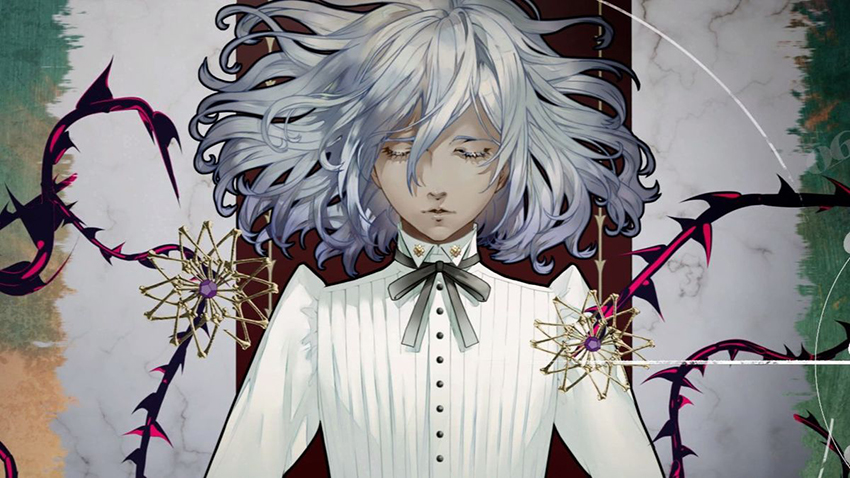Review: Metaphor: ReFantazio
Metaphor: ReFantazio is the latest RPG from Atlus, and if you’ve played games from their beloved Persona or Shin Megami Tensei franchises you can come into this one with some sense of what to expect. Like those games, it’s an enormous adventure where your efforts are split between dungeon crawling, battling, training yourself across various battle classes (here they’re called “Archetypes”) and balancing a social schedule. But as familiar as Metaphor might feel for some people, it’s also very much its own thing, and the deeper in you get the more it differentiates itself. Metaphor: ReFantazio is one of the best new RPGs in years.
The game opens with the assassination of a king in the fantasy kingdom of Euchronia. The king, who oversaw the collective lives of the numerous tribes across the towns and cities under his control, has been killed seemingly without an heir – and his assassin, the dreadful Louis, is looking to ascend to the throne through his own complex machinations.
At the game’s opening, the player character – a young man from the near-extinct, widely despised Elda race – has been sent to the capital city of Grand Trad to share a message with the resistance movement – the king’s son, thought dead, is still alive. When it’s decided that the next king will be decided through a globe-trotting tournament that tests the mettle of potential candidates, it’s up to the player to take part – and to develop themselves into a leader of virtue to win the favour of the citizens.
If that sounds complicated, know that I’m condensing the details down greatly. Metaphor‘s story throws a lot at the player straight away, and as the game unfolds it continues to drop lofty ideas and questions on the player about what it means to rule and be “virtuous”. It’s all wrapped up in an anime fantasy aesthetic,where everyone has horns and folks travel around on giant steampunk quadruped machines, but many of the game’s ideas and themes feel particularly resonant right now to our real world. It’s also a game of tremendous style, with some of the coolest menu designs I’ve ever seen in a game and a truly infectious soundtrack.
Part of the game involves politicking – wandering through towns, interacting with folks to improve your scores across the various “virtues” the game tracks, garnering support from the populous. This is the social element that Atlus famously incorporates into all of its RPGs, and the goals here feel grander than they often do in their other games, albeit, perhaps, a little less charmingly grounded (Persona makes you attend school and work hard to get good grades, for instance).
But you’ll also spend much of your time with Metaphor playing with its tremendously entertaining combat system, figuring out the best combinations of classes and attacks to deal with each of the game’s dungeons and boss battles. The aforementioned “Archetype” system is tied into the politics – you befriend numerous characters across the game, and their bonds let you unlock new abilities for your characters. Each member of your fighting party can be assigned different Archetypes, which you then level up to unlock new abilities. Depending on your loadout, your characters might also be able to access more powerful “synthesis” team-up attacks, which can do huge damage or block enemy attacks entirely.
What this means, in simple terms, is that there’s a lot of variety and choice in the battle system. It’s a delicate dance each time – finding attacks that your enemies are weak against allows you to make extra attacks on your turn, but it’s important not to get too greedy and to spend some of your moves on defensive and healing options, too.
You can build up a team with a good mix of abilities or pour everything into a specific strategy; I found myself changing my approach often, and that I needed to really plan ahead for boss fights and certain challenging portions of the game. Metaphor has the sort of battle system that’s complex and well thought-out, but keeping track of how everything fits together isn’t difficult. It all just makes sense, and if a battle isn’t going well it usually means you need to rethink how you’re playing.
In among all the fighting, the dungeon exploration, and the stress of trying to overthrow a corrupt leader, there are moments of quiet beauty in Metaphor, too. There are pleasant conversations, beautiful landscapes, and a pervasive sense of grand adventure. There’s a nostalgia to the experience, something about the game that captures the excitement I felt as a kid when I dived into sprawling game worlds.

Metaphor: ReFantazio is a long game – about 70 hours – but it feels less “padded” than some previous games from this developer (Persona 5 can easily take over 100 hours to finish, for instance). It’s a bit leaner, and less self-indulgent – no less complicated, but easier to get into. It’s a sprawling, exciting adventure, and while it’s not perfect (it’s a little muddy visually and some of the dungeons become quite repetitive), it’s nevertheless one of the year’s best games.
Metaphor: ReFantazio is available now on PS5, PS4, Xbox Series X/S, Xbox One, and PC. A PS5 review code was provided by the publisher.
James O’Connor has been writing about games since 2008. He is the author of Untitled Goose Game for Boss Fight Books, available early 2025.












